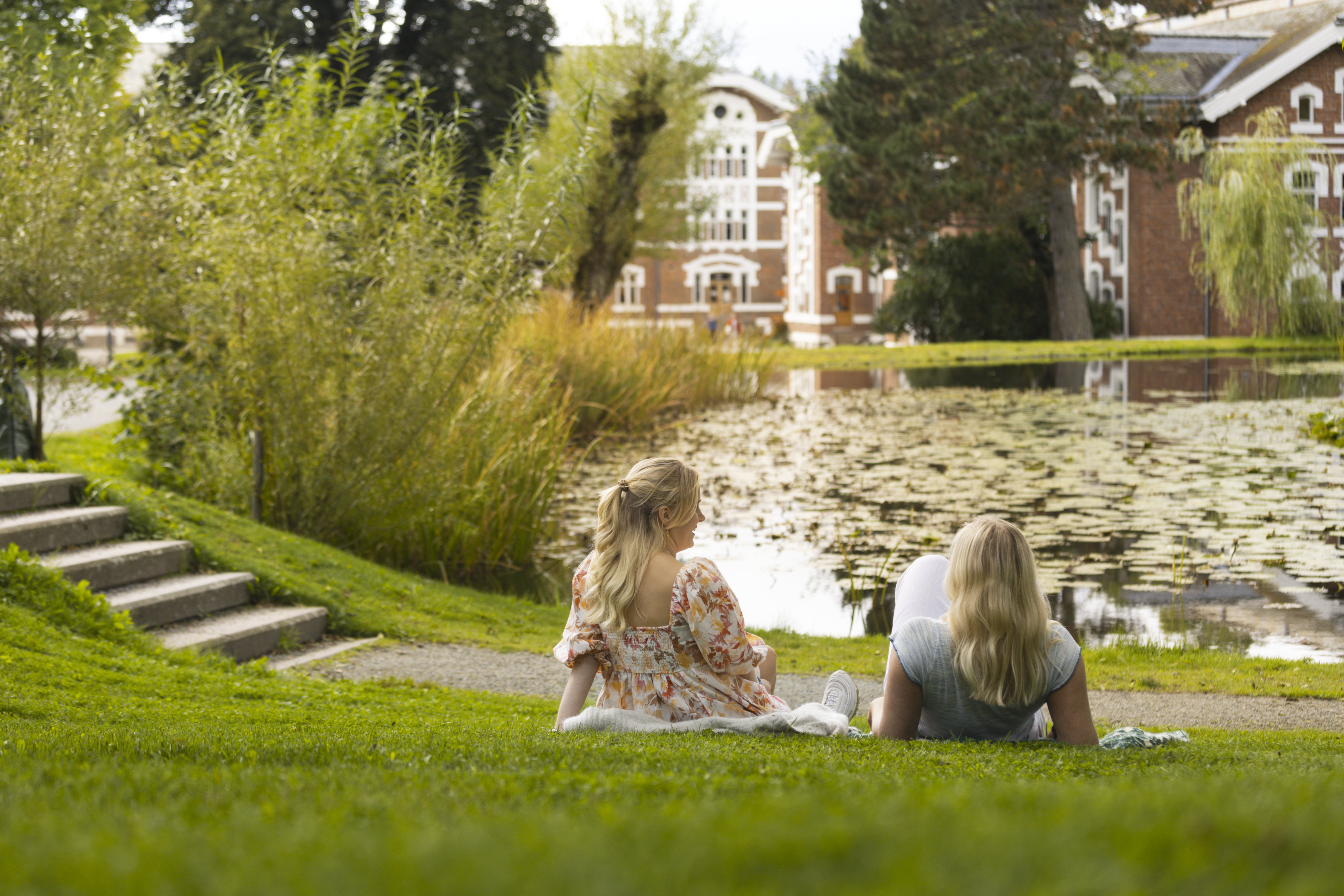Understanding life and living things has never been more crucial. That’s where bioscience makes a real difference in health, the environment, and beyond. Whether considering nature (environment), climate or food, bioscience is key if we’re serious about solving some of the world’s biggest challenges.
The Norwegian University of Life Sciences’s (NMBU) Faculty of Biosciences is a leader in creating a better world through sustainable food and bioproduction, genetics, and biotechnology, both on land and in water.
Ranked sixth in the QS World University Rankings for Agriculture and Forestry, NMBU is just 30 kilometres outside Oslo, surrounded by stunning Norwegian landscapes. The university is home to a community of 6,500 students and 2,000 staff members, and it has consistently topped national student satisfaction surveys for nine consecutive years.
The faculty is at the heart of the university’s mission to promote sustainable food production. By focusing on plants, livestock, and fish, it addresses the crucial challenge of providing safe, nutritious food while minimising environmental impact.

Source: Norwegian University of Life Sciences
Cutting-edge, multidisciplinary programmes and research
The Faculty of Biosciences is organised into two departments: the Department of Animal and Aquacultural Sciences (IHA) and the Department of Plant Sciences (IPV). It is actively involved in EU initiatives such as “Farm to Fork” and “A European Green Deal,” aiming to integrate their expertise into educational programmes and address complex challenges.
For example, the faculty is developing sustainable feed resources for livestock and fish that have minimal impact on arable land. They apply behavioural biology principles to improve the welfare and sustainability of animal production and the care of companion animals. In plant genetics, researchers strive to enhance growth and adaptation to make agriculture more climate-resilient.
Students at NMBU can explore the latest breakthroughs through English-language master’s programmes in Animal Science, Genome Sciences, Agroecology, Aquaculture, Plant Sciences, Sustainable Food Systems, and Urban Agriculture. These programmes explore “wicked problems” in sustainable development, encouraging students to develop innovative solutions like robotics and AI for agriculture or advanced genome technologies for better breeding.
Hands-on learning is a key component of the NMBU experience. Students benefit from research-based education, working closely with faculty and using on-campus research facilities, live animals, and plant fields. Partnerships with research centres and involvement in large-scale projects like the NMBU Sustainability Arena: GreenSmart and Sustainable Food Systems highlight the university’s commitment to real-world impact.
Just ask Shreeram Ghimire, a master’s student in Aquaculture. “The best thing about studying aquaculture at NMBU is the combination of motivating and influential faculty with courses rich in experiments and theories, providing a comprehensive understanding of modern aquaculture practices,” he says. “Field visits, strong industry ties, and cutting-edge research facilities further enhance this exceptional learning experience.”
Student experience at NMBU
NMBU provides an environment where students can thrive academically, socially, and personally. This supportive atmosphere contributes to the university’s top student satisfaction rankings. “Being a student at NMBU is enriching, with helpful faculty and numerous facilities enhancing the learning experience,” Ghimire says. “The university provides many opportunities to learn through hands-on work and practical research in its state-of-the-art facilities.”

While at NMBU, Emily Follett took many great classes, but her favourite part was spending an entire year on her master’s thesis and completing the full experimental process. Source: Norwegian University of Life Sciences
The small class sizes at NMBU allow for a personalised learning experience. Students benefit from close guidance from professors who maintain an open-door policy, making it easy to ask questions and seek assistance. There’s always a sense of belonging, a positive working environment, and a culture of fellowship.
“I also appreciate that the lecturers are always available and very willing to help their students in a wide manner of ways,” says Emily Follett, a Masters in Plant Science student. “In one class I took during my masters, I would regularly stay after for almost 30 minutes just talking to one of the lecturers who had similar academic and personal interests to me.”
Campus life is as vibrant as the intellectual discourses in its faculties. There are around 50 student clubs covering a range of interests and as many as 17 sports, including basketball, football, wall climbing, rugby, rowing, MMA, and cross-country skiing. The student sports centre, Eika, caters to both team and individual sports. NMBU further supports student welfare with mentors, mental health services, and health services.
Learn more about the Norwegian University of Life Sciences.
Follow Norwegian University of Life Sciences on Facebook, Instagram, and LinkedIn










